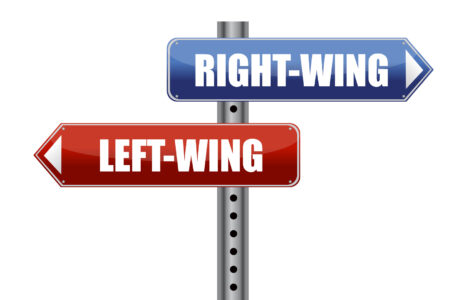
Oh, the perils of magazine publishing! I closed this column last month with the wish that the Canadian Alliance would stick with their flat tax proposal at least long enough for our October issue, the first 40 or so pages of which dealt with the Alliance plan, to arrive in readers’ hands. They didn’t. At the launch of their election platform, which took place while we were still in press, they announced that the flat tax was on hold and that for the coming election they would be running on a two-step tax, with marginal rates of 17 and 25 per cent. I suppose we can take some solace in the fact that the flat tax is still the Alliance’s long-run plan, so the analysis we provided will have lasting use. But still, our own October launch fell rather, well, flat.
This November issue of Policy Options has also been overtaken by events””maybe. Back in August, when I thought of asking notable Canadian commentators what they thought Jean Chrétien’s legacy would be, the next election was still at least six months off. My thinking was, however, that, even if he won next spring’s election, Mr. Chrétien seemed likely to leave office within the next 18 months to two years””which meant that his government was already seven-eighths or seven-ninths over. And, of course, if he lost, he presumably would be gone even soon- er. So even though our various writers would have to cri- tique Mr. Chrétien’s performance as prime minister with- out the benefit of seeing its final scenes, most were willing to provide such a preliminary review.
But as August became September and September October, the chances of a fall election rose dramatically, until now, at the time of writing, in mid-October, it seems a virtual certainty. As a result, instead of an essentially aca- demic exercise published a safe distance in advance of a federal election, that exercise may be appearing at the height of an election, timing that””who knows? strange things happen in elections””may render it much more (or would that be less?) than academic.
That’s not exactly where a policy institute wants to be in the thick of campaign. It’s lucky, then, that our 10 con- tributors are quite divided on Mr. Chrétien’s likely legacy. I had been hoping for that when I made up my list of who to ask, of course, but one never knows exactly what line will be taken until the draft is in, and, unlike radio and tel- evision producers who frequently call to do a pre-inter- view before deciding whether to invite you onto their show as either the pro or con half of a pair of talking heads, my habit is not to sound out prospective contributors’ ideas before asking them whether to write. Paying the rates we do””four complimentary copies and a free one-year subscription””I’ve never believed we can afford to be choosy.
A second event that overtook this possibly premature evaluation of Jean Chrétien’s achievements in office was the death of his predecessor and mentor, Pierre Elliott Trudeau, on September 28th. As a result, this may be the second set of prime ministerial evaluations you are reading this season. Judging by the blow Mr. Trudeau’s death obvi- ously struck him, I expect Mr. Chrétien would be the first to concede that he might well not be flattered by a com- parison with Pierre Trudeau””but then who would be?
So how does Mr. Chrétien do with our panel? On the whole, not badly. There is, of course, the problem, as Desmond Morton points out, of deciding how to judge a prime minister. If you take the simple and traditional view of looking at what happens on his or her watch, then our preview of history’s judgment is reasonably kind to Mr. Chrétien: The economy is booming; the federal fiscal house is in the best order in 50 years; and, after a near- death experience in 1995, Québec separatism seems quies- cent again. (On at least two out of three counts, inciden- tally, and possibly even on the third, this all compares quite well to 1984, when Mr. Trudeau left office.)
On the other hand, there is the view that you judge a political figure, not by what happens while he is in power, but by how great a difference he makes. Thus, in theory at least, R. B. Bennett could have been one of our better prime ministers: How many of the others, even the great ones, would have looked good in a Great Depression? By this measure, what counts is a prime minister’s marginal influence, as an economist would put it.
On this question, the consensus seems to be that Mr. Chrétien has lacked vision. His two significant predeces- sors Mr. Trudeau and Brian Mulroney, had””or at least acquired””vision in abundance, and in both cases the country went through wrenching times as a result. Mr. Chrétien’s vision, by contrast, seems to be one of compe- tent management. And despite exceptions””HRDC, Pearson Airport, those on-again, off-again helicopters, and a rash promise about the GST””competent management is what he seems in the main to have delivered. Which is not to say this relatively modest goal has been easy to achieve: Previous management had left the country with a stagger- ing deficit and a rising national mortgage. Both problems are now well in hand.
And yet, the most pages in our history books tradi- tionally have been reserved for those who do big things: found the country, build the railway, govern for 23 years, change the flag, start medicare, bring home the constitu- tion, negotiate free trade. To date, our historians have not typically been willing to give many points for ”œeliminate the deficit, curb the debt-to-GDP ratio.” This may be unfair, and it may change, but for the moment those things probably don’t qualify as ”œvisionary.”
Was vision in the more traditional sense needed in the 1990s? Canadians on the right would argue that a more aggressive dismantling of the welfare state and much speedier reduction in taxes were needed to secure the country’s economic and moral future, while those on the left would point to homelessness and child poverty and argue that the state still needs to take aggressive, visionary action to bring society’s resources to bear against these social problems. But how much agonizing political change can a society take? The National Energy Policy, patriation, the FTA, Meech, Charlottetown. Give us a break, was the all-but-universal refrain in the early 1990s.
Do we need greater vision now? It obviously depends which vision. But the election we are about to have”” whether in November or next spring””will largely answer how much vision people are ready for. And the campaign will tell us something about Jean Chrétien’s current view of vision. He could reasonably argue that until recently vision was a luxury he could not afford. But with a $12.3 billion surplus having been booked in the last fiscal year, the luxury may now be affordable. Mr. Chrétien has already said the election will be about values. The death of Mr. Trudeau has many Canadians thinking about tradi- tional, activist Liberal values. By the time you read this, we may know whether Mr. Chrétien has been thinking about them, too.







